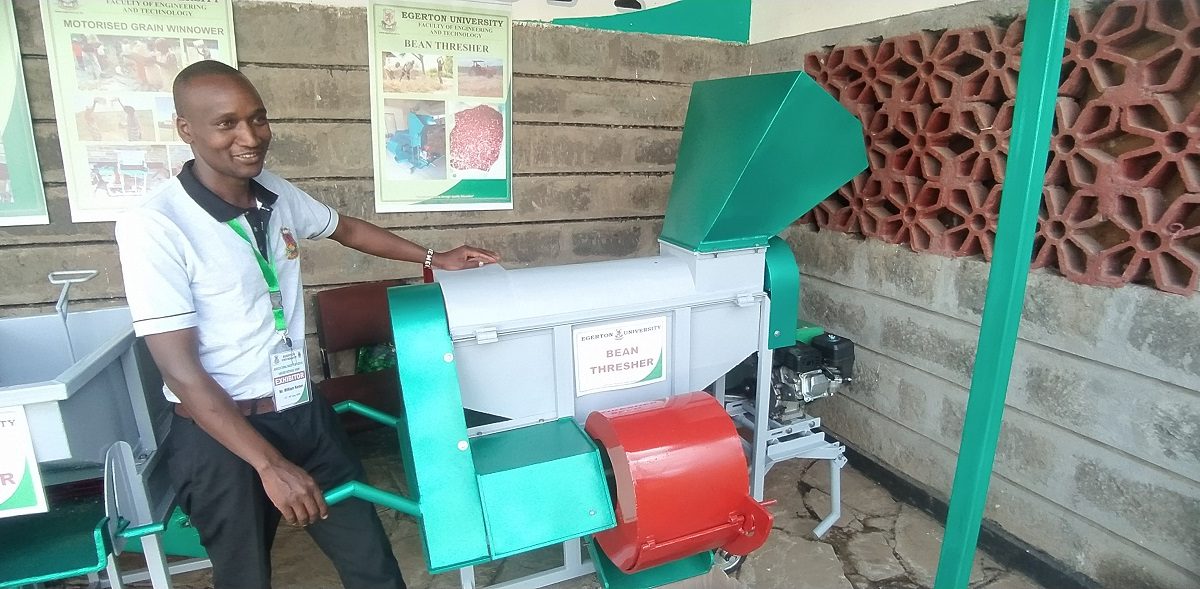The Vice Chancellor of Egerton University, Professor Isaac Kibwage, has called upon the private sector to collaborate with universities and technical training institutions to accelerate the commercialization of research and innovations through patenting. He emphasized that sustainable development globally depends on continuous adaptation and innovation.
Speaking at a workshop organized to promote innovation and intellectual property awareness, Professor Kibwage noted that in an era of rapid technological advancement and evolving socio-economic dynamics, there is a pressing need to harness skills and innovation by enhancing understanding of patent laws and commercialization processes. This, he argued, would enable Kenyans, particularly the youth, to unlock the full potential of their innovations.
“Any country that will be ahead in the skills and innovation space will control the world,” stated Professor Kibwage.
He urged Kenyan innovators to patent their creations, securing exclusive rights and commercial benefits. The Vice Chancellor revealed that Egerton University is currently prioritizing the commercialization of a bean thresher, with Professor Paul Kimurto, Director of the Egerton University Agro-Science Park (a Government of Kenya Vision 2030 Flagship Project), leading efforts to collaborate with the Kenya Industrial Property Institute (KIPI) to achieve this goal.
Strengthening Innovation and Entrepreneurship
Professor Kibwage highlighted the university’s entrepreneurial initiatives, including plans to enhance staff innovation capacity through training programs conducted by the Kenya Innovation Agency (KENIA). He also announced the completion of the university’s Innovation and Commercialization Masterplan, designed to provide students with a robust foundation for developing their innovative ideas.
The Vice Chancellor advocated for a mindset shift among inventors, encouraging them to prioritize intellectual property protection through patents and actively pursue commercialization opportunities.
Collaboration for Economic Growth
During the workshop—organized by Egerton University’s Directorate of Research in partnership with KIPI—Professor Kibwage urged research and educational institutions to embrace innovation as a means of enhancing skills development and commercializing innovations from students, staff, and faculty.

As a founding member of the Council of Kenyan Entrepreneurial Universities under KENIA, Egerton University is forging partnerships with East African venture capital institutions to fund viable innovations. Professor Kibwage called for stronger collaborations between academia and the private sector to translate research into industrial applications, wealth creation, and job opportunities.
“Our educational and research institutions have the potential to play a more proactive role in supporting an innovation ecosystem, especially through the recognition of patentable innovations,” he added.
The Role of Research in National Development
Professor George Owuor, Director of Research at Egerton University, stressed the urgency of instilling an entrepreneurial mindset in students to prepare them not only for employment but also for job creation. He underscored the role of science, technology, and innovation in driving socio-economic transformation and achieving sustainable growth.
“Research accelerates innovation, and countries that embrace it secure a competitive edge in the global knowledge economy,” said Professor Owuor. He urged institutions to focus on key economic sectors such as agriculture, tourism, ICT, and manufacturing, aligning innovation with national development goals, including the fourth and eighth Sustainable Development Goals (SDGs).
Intellectual Property Rights and Commercialization
Benson Baituru, Patent Examiner (ICT and Electronics) at KIPI, explained that the workshop aimed to equip participants with knowledge on protecting intellectual property (IP) and transforming ideas into viable businesses. He noted that despite the government’s efforts to promote IP rights, many entrepreneurs remain unaware of their benefits.
Kenya’s Constitution (Articles 11 and 40) mandates the government to support, promote, and protect IP rights. The Kenyan legal system recognizes three primary forms of IP protection, namely Patents (for scientific, medical, and technological innovations), Copyrights (for artistic works), and Trademarks (for brand identifiers).
Industrial designs and utility models are also safeguarded under Kenyan law. KIPI, alongside agencies such as the Kenya Plant Health Inspectorate Service and international bodies like the World Intellectual Property Organization (WIPO), plays a pivotal role in administering IP rights.






